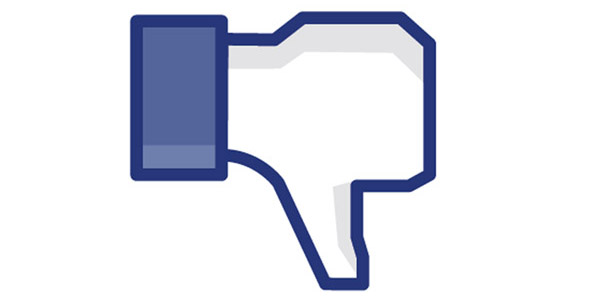6 Ways to Avoid PR Blunders on Social Media
No matter how prepared you think you are, mistakes are bound to happen. As a business, you want to reduce the amount of negative attention you receive as much as possible. ...
Filter by Category

No matter how prepared you think you are, mistakes are bound to happen. As a business, you want to reduce the amount of negative attention you receive as much as possible. ...
Posted by provercoffee

It’s easy to get caught up in the jargon of an industry. After all, the more you are exposed to certain words the more likely they are to creep their way into your vocabulary....
Posted by provercoffee

Emails are a great way to connect with your customers and remind them of your business. If you’ve ever run an email marketing campaign, you understand the importance of open and...
Posted by provercoffee

Trying to gain awareness for your startup can seem like an overwhelming task at first. There are so many startups trying to get in the news in hopes of propelling their growth....
Posted by provercoffee

With the variety of marketing tools available to brands today, video is one that should not be overlooked. Don’t be afraid to get creative with your marketing strategy by...
Posted by provercoffee

If you’re just starting out, or if you’ve been too busy with other aspects of your business to think about marketing, you may be considering outsourcing your marketing efforts to...
Posted by provercoffee

For brands and businesses of all shapes and sizes, blogging has basically become a necessity at this point. From improving SEO to attracting leads, there are many benefits of...
Posted by provercoffee

Producing great content is what draws people into your business and allows your audience to discover what you can offer them. When you’ve targeted your key audience,...
Posted by Weslie Oeftering

Lead generation is an aspect of running a B2B business that many people struggle with. Growing leads may seem like a tedious, drawn-out process, but in the end, the relationships...
Posted by provercoffee

So you’ve recently started your business and have been working hard to promote it. You’ve created a website because it is 2017 and without one your company wouldn’t survive for...
Posted by Weslie Oeftering
 No matter how prepared you think you are, mistakes are bound to happen. As a business, you want to reduce the amount of negative attention you receive as much as possible.
No matter how prepared you think you are, mistakes are bound to happen. As a business, you want to reduce the amount of negative attention you receive as much as possible.
Whether you say something you regret in the heat of the moment or someone misinterprets your message, what you say can potentially lead you into hot water. PR blunders will happen, the important thing is how well you react to them.
To limit the amount of PR fires you are putting out, keep these tips in mind.
In whatever message you are sending out, it’s important to remember your audience. Some companies, such as Wendy’s, have gone viral on social media by becoming known for their sarcastic responses to customers. Wendy’s has become successful in this strategy because they figured out a way to connect with millennials on Twitter in a playful, entertaining way. The secret behind Wendy’s Twitter success lies in the fact that they are clever with their responses and are in an industry where their behavior on Twitter is more acceptable. Keep in mind that this strategy has to be used very carefully as it can quickly become offensive or insulting. There is a fine line between being clever versus crude (or inappropriate), so it is important to pay attention to your word choice when crafting messages. Before you send out a message, ask yourself and your peers if a reasonable person in your industry would be offended by your words.
Hashtags can be a great asset to networking or gaining awareness for your business. They can also be a recipe for a PR mishap. A “bashtag” is when a hashtag becomes a platform for sharing negative information about a company. It starts with a well-intentioned social media campaign, but for some reason or another quickly backfires. An example of this is when McDonald’s launched a campaign using the hashtag “#McDStories”. The intention of the campaign was for customers to share lighthearted stories about their memories of McDonald’s. The impact of this campaign quickly went south, however, when people started sharing McDonald’s horror stories instead. Before you start a social media campaign, weigh your options for how things could go awry. A failed campaign can do much more harm to your business than a successful one can do good.
Making sure everyone is on the same page about the tone and mission of the message your company is pushing is crucial. Consistency allows for your brand to build a reputation and become better established in your audience’s collective memory. Creating guidelines serves as a “cheat sheet” for employees to understand the game plan for how to react and how to craft messages. Writing out your strategy makes it easier to follow, and it makes your team more accountable for following it. Establishing rules early on helps avoid future disasters because you already have a plan in place.
You never know what people will say on social media, so don’t forget to regularly monitor your accounts. Be on the lookout for negative comments on your posts so that you can react accordingly. You should also monitor what people are saying about your business through reviews sites like Yelp, or on their own personal accounts. Be sure that you have included a process for responding to negative messages in a professional manner.
It’s easy for mistakes to slip through the cracks, so make sure that multiple sets of eyes take a look at the content you’re putting out in social media. Double or triple check everything that you do to ensure that it is as close to perfect as possible. You don’t want to accidentally let a typo slip through. While typos normally just illustrate a careless mistake, you never know when your typo could accidentally turn a normal word into something offensive. You can’t completely erase a mistake, so it’s important to have a solid system in place for editing content.
About Lauren Usrey: Lauren is a student at the University of Texas at Austin and a marketing communications intern at Swyft. She supports clients with social media, blogging and tech PR activities. Swyft has offices in Austin, Denver and Houston and provides digital marketing and PR services for tech companies seeking rapid, sustained growth. Some of the services provided include content marketing, social media strategy and ad buys, email marketing, and media relations.

Small businesses and PR are like Oil & Vinegar. They can be at odds, tasting acidic and unctuous without accomplishing anything special; or they can be vigorously combined and...

Working with a PR firm can be an exhilarating time for a company (or nonprofit). PR can put you in the public eye like no other marketing activity. Indeed, your first time on...